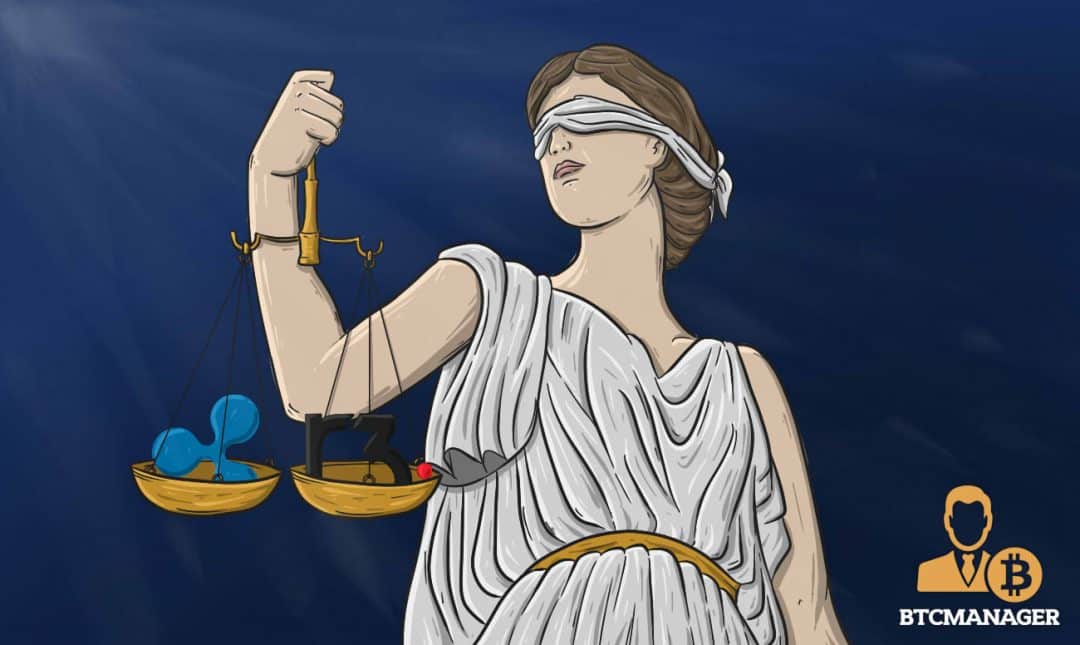Ripple Wins Lawsuit Against R3, CEO Brad Garlinghouse Reveals

Brad Garlinghouse, the CEO of Ripple, the software development company behind the $10 billion Ripple network, revealed the firm had won the lawsuit R3CEV filed in September.
Last month, R3CEV, which operates a blockchain consortium participated by more than 70 retail and investment banks including Barclays, HSBC, and UBS, filed a lawsuit against Ripple in the Delaware Chancery Court. The blockchain consortium accused Ripple of violating its previous contract established in September 2016 to purchase five billion XRP at a fixed price of $0.0085 within a three-year period.
Reuters, a member of the R3 consortium, disclosed that Ripple had given R3CEV a permit to purchase a batch of five billion XRPs at a rate that is significantly lower than the current price of $0.28. Essentially, Ripple had signed an options contract with R3CEV, allowing the firm to purchase XRP at a fixed price at the time.
According to Reuters, Garlinghouse announced in an email conversation with R3CEV CEO David Rutter that the company intends to terminate the contract and deny the rights of R3CEV to purchase XRPs at a lower rate. Upon receiving the statement of Garlinghouse through email, Rutter and the R3CEV team went on to file a lawsuit against Ripple, demanding its rights to purchase XRPs at the rate that was agreed upon in 2016.
At the time of reporting, the current price of XRP is $0.28. The termination of the contract by Ripple meant that R3CEV would not be able to cash in and purchase five billion XRP, which would have profited the company at least $1.2 billion. In simpler terms, if R3CEV had won its lawsuit against Ripple and regained the rights to purchase XRP at a lower rate, the company would have earned $1.2 billion in profit.
In an interview, a Ripple spokesperson stated that R3CEV did not deliver its services and meet its commitments, which were a significant part of the agreement. Ripple also accused R3CEV of remaining in the contract with the sole intent of purchasing XRP at a lower rate, but not providing any additional services to the company. The spokesperson noted:
“Our filing is straightforward – R3 misrepresented their ability and intent to deliver on their commitments. Given XRP’s ~4000 percent increase over the course of the year, R3 suddenly wants to tap into the value of XRP, though the facts are clear that they did not earn any option based on our agreement.”
On October 13, after a month-long legal battle, Garlinghouse announced that Ripple had won the lawsuit filed by R3CEV, and the case was dismissed by a Delaware judge:
BREAKING NEWS: @Ripple has prevailed in lawsuit brought by @inside_r3 ! Delaware judge has just ruled and thrown out case against Ripple.
— Brad Garlinghouse (@bgarlinghouse) October 13, 2017
For Ripple, the dismissal of the R3CEV case is considered important, as it has secured several major deals with multi-billion dollar institutions over the past few months. On October 10, Ripple disclosed its successful partnership with the Swedish SEB Bank, in which the Ripple network processed over $180 million worth of international transactions between Sweden and the US. Since such transactions are carried out using the Ripple network’s native token XRP, sufficient liquidity is necessary to facilitate the settlement of large payments.













